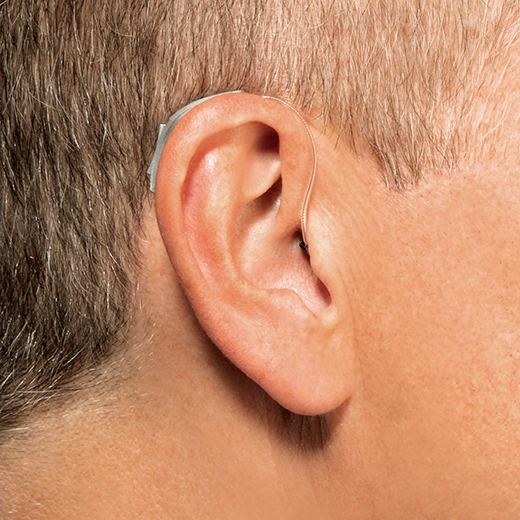How is Your Child’s Hearing?

The human body is uniquely resilient and adaptable, overcoming debilitating infections, viruses, bacteria, and congenital difficulties, including hearing loss. A bevy of recent studies suggests that our children may not get all the quality hearing care they need to succeed academically, socially, and professionally. Yet, with all the developmental difficulties associated with pediatric hearing loss, catching hearing loss early usually equates to leading an everyday life.
For instance, a recent study from the University of Southampton found that teenagers who had been identified as deaf by the time they were nine months old had much better language skills than children who had not been screened. This new study illustrates the longer-term benefits of early hearing loss detection: If deaf children who receive proper testing and treatment could develop their language and reading abilities, why couldn’t children with other, less severe forms of hearing loss? After all, children’s hearing health is vital for every child. The importance of early hearing testing cannot be overstated.
How Does a Child’s Hearing Screening Work?
So, if you’re considering getting your child a pediatric hearing test, you might wonder what happens during the process. Of course, it all depends on your child’s age and level of understanding.
Two noninvasive early hearing detection tests for newborns and infants are the otoacoustic emissions test (OAE) and the auditory brainstem response test (ABR). Both hearing tests for kids are designed to elicit data to suggest a path forward on hearing treatment if an issue is discovered.
In the OAE test, the sound waves produced in the inner ear are measured through a tiny probe placed in the baby’s ear canal. This infant hearing test can reveal valuable information early.
Meanwhile, the ABR test evaluates how the brain’s hearing nerve responds to sounds. This test involves placing electrodes on the child’s head to measure the hearing nerve’s response.
For older children, the pure-tone audiometry test is used. This is the standard test that uses headphones, and the patient is asked to respond by raising a hand whenever they hear a sound. Typically, this is a perfect toddler hearing test.
The audiologist plays a crucial role in testing and interpreting the results of any childhood hearing evaluation. If any hearing loss is detected, more tests may be necessary, and appropriate interventions like hearing aids or speech therapy may be recommended to ensure the child’s development remains on track. Do not ignore any of the signs of hearing loss in children!
When Should Children Have Their Hearing Tested?
Most children receive their first audiological evaluation for children shortly after birth. All states have implemented newborn hearing screenings in hospitals and birthing clinics. And though most screenings happen before a newborn is discharged, it is essential to continue with regular hearing screenings throughout childhood. Like most health disorders, the effects of hearing loss are easier to manage when the diagnosis happens early.
A Penn State College of Medicine study recently examined school screenings, and the results suggested that some state-mandated hearing screenings often miss high-frequency hearing loss, which is common in individuals affected by loud noises. Nearly one in five teens now have at least a mild hearing loss; students with mild hearing loss are more likely to repeat a grade and suffer an estimated lifetime loss of income between $220,000 and $440,000.
Hearing losses of all types can affect children of all ages. Scheduling hearing evaluations at regular intervals, such as certain hearing milestones for children, can help you keep up with your child’s hearing health and catch any nuances or changes in their hearing — even if they seem to have normal hearing. This approach allows for understanding and proper education on child development and hearing. The typical schedule for children’s hearing tests consists of screenings at ages 4, 5, 6, 8, 10, 12, 15, and 18, but please feel free to speak to one of our hearing care professionals for help creating a care plan for your child.
Need a Hearing Test for Your Child? Call Vibrant Hearing
The experts at Vibrant Hearing can make a difference in your child’s hearing after our first appointment. If you’re worried about your child’s hearing abilities, we’re here to ease your anxiety and put your child on a path to success. Contact us now to schedule an appointment.

